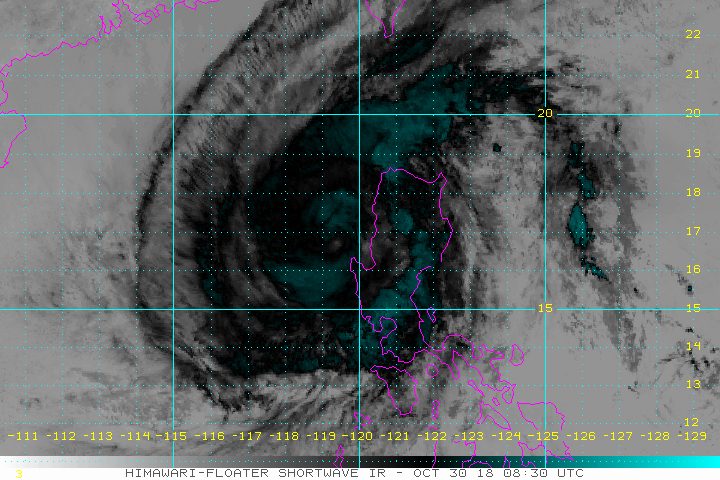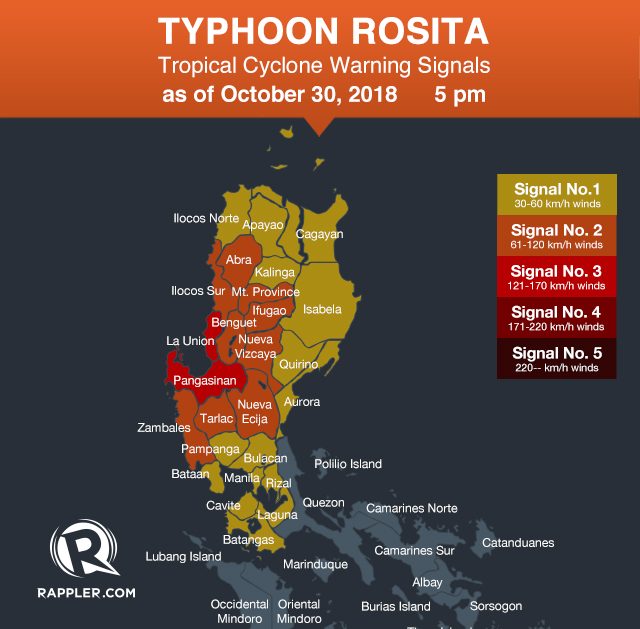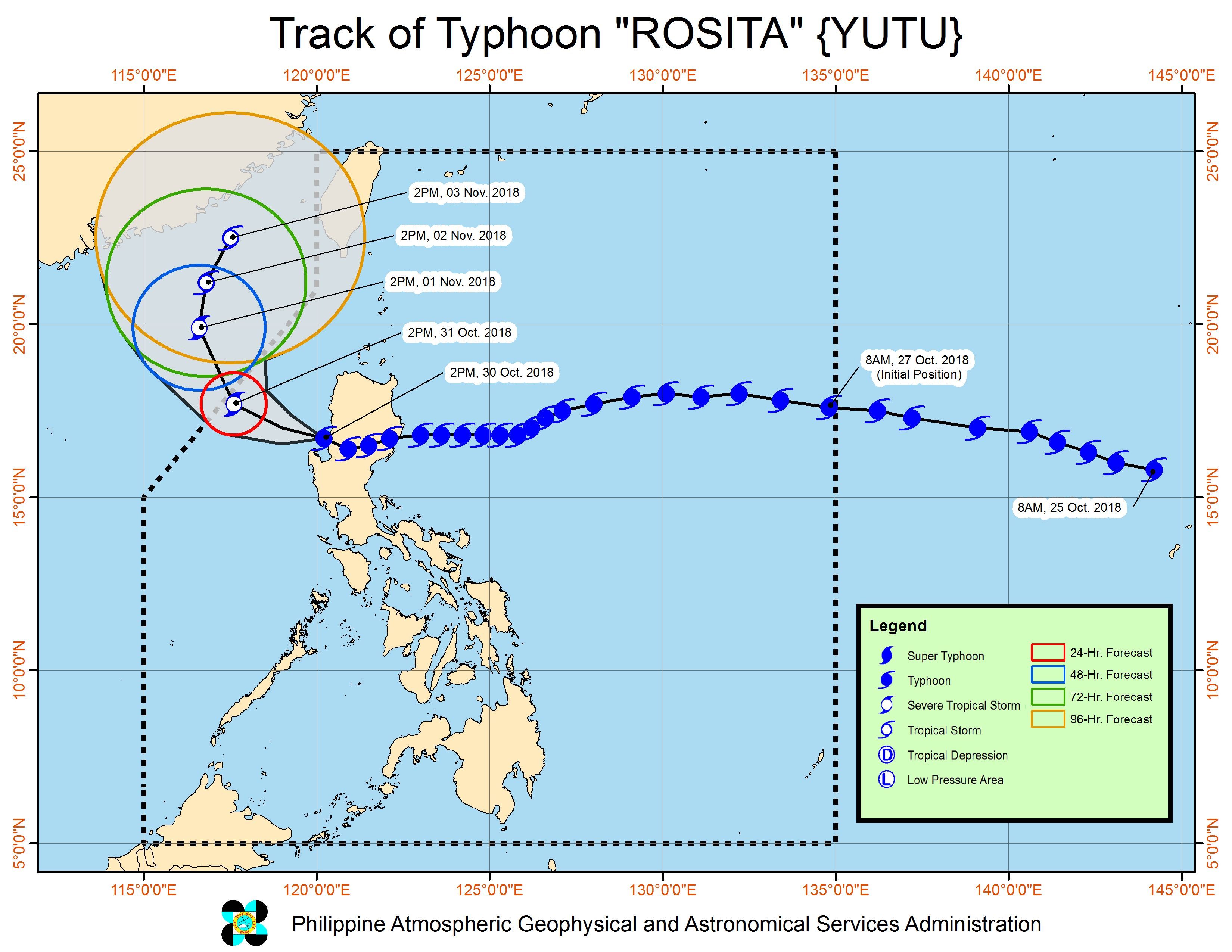SUMMARY
This is AI generated summarization, which may have errors. For context, always refer to the full article.

What’s the weather like in your area? Report the situation through Rappler’s Agos or tweet us at @rapplerdotcom.
MANILA, Philippines – Typhoon Rosita (Yutu) “weakened after crossing the rugged terrain of Northern Luzon and is now heading toward the West Philippine Sea,” according to forecasters.
In a bulletin issued 5 pm on Tuesday, October 30, the Philippine Atmospheric, Geophysical, and Astronomical Services Administration (PAGASA) said Rosita is already 125 kilometers northwest of Dagupan City, Pangasinan.
It is moving west northwest at a slightly faster 25 kilometers per hour (km/h) from the previous 20 km/h.
The typhoon’s maximum winds are down to 125 km/h from the previous 140 km/h, while its gustiness decreased to 190 km/h from the previous 230 km/h. (READ: FAST FACTS: Tropical cyclones, rainfall advisories)
Rosita earlier made landfall in Dinapigue, Isabela, at 4 am on Tuesday. After hitting Isabela, it crossed Nueva Vizcaya, Benguet, and La Union. It then left landmass through La Union at 2 pm. (READ: Clearing operations ongoing in typhoon-hit Isabela)
Fewer areas remain under tropical cyclone warning signals, since Rosita has left landmass. But stormy weather will persist in areas under Signal Nos. 2 and 3.
Signal No. 3:
- Pangasinan
- La Union
Signal No. 2:
- Abra
- Ilocos Sur
- Ifugao
- Benguet
- Mountain Province
- Nueva Vizcaya
- Nueva Ecija
- Tarlac
- Zambales
Signal No. 1:
- Ilocos Norte
- Apayao
- Kalinga
- Cagayan
- Isabela
- Quirino
- Aurora
- Bulacan
- Pampanga
- Bataan
- Metro Manila
- Rizal
- Cavite
- Laguna
- Batangas

Rosita has been bringing heavy rain and strong winds to Northern Luzon and Central Luzon. Isabela, in particular, bore the brunt of the typhoon. (IN PHOTOS: Typhoon Rosita’s onslaught in Isabela)
PAGASA warned that flash floods and landslides remain possible. There might also be storm surges up to 3 meters high in coastal areas of Ilocos Sur, La Union, and Pangasinan.
Residents of some coastal areas and landslide-prone areas preemptively evacuated ahead of Rosita’s landfall. (READ: Cagayan braces for Typhoon Rosita a month after Ompong)
Sea travel remains risky in the seaboards of areas under tropical cyclone warning signals, and in the eastern and western seaboards of Southern Luzon.
A gale warning was issued at 5 pm on Tuesday for Batanes, the Babuyan Group of Islands, the western coast of northern Palawan, the eastern coast of Quezon including Polillo Island, Camarines Norte, Camarines Sur, and Catanduanes.
Seas off those areas are rough to very rough, with wave heights reaching 2.6 meters to 4.5 meters.
PAGASA advised fishermen and others with small vessels not to set sail in areas covered by the gale warning. Larger vessels should watch out for big waves.
Classes will remain suspended in some areas on Wednesday, October 31, due to the effects of the typhoon. (READ: #WalangPasok: Class suspensions, Wednesday, October 31)
Based on Rosita’s latest forecast track, it will leave the Philippine Area of Responsibility on Wednesday afternoon.

Rosita is the Philippines’ 18th tropical cyclone for 2018. The country usually gets an average of 20 tropical cyclones per year. (READ: LIST: PAGASA’s names for tropical cyclones in 2018)
PAGASA declared the start of the rainy season last June 8. – Rappler.com
Add a comment
How does this make you feel?
There are no comments yet. Add your comment to start the conversation.